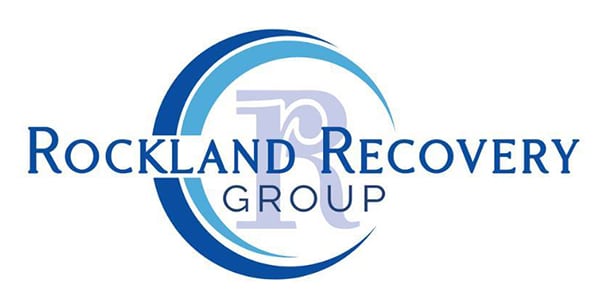Admitting to yourself and others that you have a substance use disorder isn’t easy, but it’s one of the most important steps toward recovery. Once you’re able to admit to struggling with substance use and acknowledge the need for treatment, you’re finally in a place for recovery and healing to begin. You might be unsure about entering rehab voluntarily and what’s involved. Here, we have the answers you’re looking for about checking yourself into rehab.
Is Self-Admission to Rehab Allowed?
Yes, entering rehab voluntarily is something that is acceptable and encouraged. You don’t need to be ordered into rehab or have a doctor provide you with a referral. If you’re at a place where you know you’re struggling with addiction and need help, you don’t have to wait for permission or the perfect time.
Many individuals searching for voluntary rehab programs aren’t sure where to start. The Substance Abuse and Mental Health Services Administration (SAMHSA) offers many informative and helpful resources on its website. These include an online directory of providers and a 24-hour National Helpline at 1-800-662-HELP (4357).
When you’re ready to explore your addiction recovery options, one of the first questions you need to consider is whether you need outpatient or inpatient rehab programs.
Inpatient vs Outpatient Rehab Services
When checking yourself into rehab, you have two primary options – inpatient or outpatient treatment. Inpatient treatment is a residential addiction recovery program. With inpatient treatment, you reside at the addiction treatment center for the duration of your treatment plan.
Inpatient treatment is highly structured, supportive, and intensive. Your entire day is scheduled around addiction recovery and developing healthy habits that support long-term sobriety.
Some criteria must be met for admitting yourself to an addiction center for inpatient treatment. You don’t necessarily need to show up at the door with a diagnosis of addiction, but you will be assessed to ensure that inpatient rehab is best suited for your needs. Still, having a referral from a doctor may streamline the process.
Inpatient rehab is generally not for individuals who are concerned their substance use has become excessive, but aren’t yet at the point of being diagnosed with addiction. In this case, outpatient treatment is a better option.
Outpatient treatment is less intensive and structured, but it allows you the flexibility to reside at home and schedule rehab treatments around work, school, family, and life. There are varying degrees of structure in outpatient programs. These range from partial hospitalization, also known as day treatment, to standard outpatient, where you attend individual treatment sessions several times a week.
Whether you require inpatient or outpatient treatment depends on several factors. These factors include the type of addiction, the severity and duration of substance use, and the history of addiction. Additionally, whether you need to undergo a medically supervised detox also plays an important role in determining the appropriate treatment.
Steps to Checking Into Rehab On Your Own
It’s important to understand the addiction recovery options that are available to you. Most people prefer to stay somewhat close to home when checking into rehab, so you’ll want to explore what options are available in your area. Others prefer a level of anonymity, especially with residential treatment programs, and may look for a treatment center that is a little further away.
When researching treatment options, educate yourself on the types of programs and treatments offered to ensure they align with your treatment goals. Some rehab centers specialize in treating only certain types of addiction. Researching the center’s reputation and staff credentials is also a good idea.
At Rockland Recovery, we understand this is a tremendous undertaking and suggest asking a trusted support person to help you with this process.
Make Contact and Ask Questions
The next step is choosing a rehab center, which involves contacting them directly and asking questions. This is when you have the opportunity to learn more about their program offerings, admission criteria, and the process of admitting yourself to a treatment center.
A professional and compassionate rehab facility will take the time to answer your questions and discuss the process with you. If they are unable to do so at the time of your call, they should offer to schedule a time to either continue the conversation via phone or have you come in for a complimentary consultation. Be wary of rehab facilities that treat you with respect from the beginning.
Contact Your Insurance Company
According to the Affordable Care Act, insurance companies are required to provide coverage for addiction treatment. For many people, cost has been, and continues to be, a barrier to treatment. By contacting your insurance company directly, you’ll have a better understanding of what your coverage offers, and what your financial obligation may be.
Take Care of Obligations
Drug and alcohol rehab can cause disruptions in other areas of your life, especially if you’re checking into an inpatient treatment program. Taking care of obligations that rehab may affect is important for making this major life transition a little less stressful.
If you’ll be missing work or school, notify them ahead of time. You might also want to reschedule any appointments that you have in the near future and make arrangements for child care if needed. If you’ll be entering an inpatient treatment center, it’s also a good idea to pay any bills ahead of time and cancel or suspend any services you won’t need while there.
Tell Those Closest To You
Those closest to you might already know about your problems with substance use and intentions to seek treatment. However, if they don’t, it is time to fill them in. Prepare for an honest, open conversation about your plans, and ask for support if needed.
Prepare Yourself for Admission
Finally, make sure you have everything you need on the day of admission. For inpatient rehab, this means packing a bag with a few essentials and changes of clothing. Make sure to check with the facility about what items you’re allowed to bring and which are forbidden. Arrange for transportation to and from the facility if needed.
If you’re checking into outpatient rehab, you’ll need to gather a few items. You’ll need the basics, such as an ID, insurance card, and contact information, and be able to provide information about any pertinent medical or mental health issues.
Admitting Yourself to a Treatment Center in Massachusetts
When you want to know how to check yourself into rehab, Rockland Recovery is here to help. We understand this is one of the most vulnerable and uncertain times of your life, and the journey ahead of you isn’t easy. This is why we offer support, compassion, and respect from the first time you contact us.
Our team is here to answer your questions about rehab and available treatment options. All you have to do is reach out. Contact Rockland Recovery at (888) 299-4833 today.




